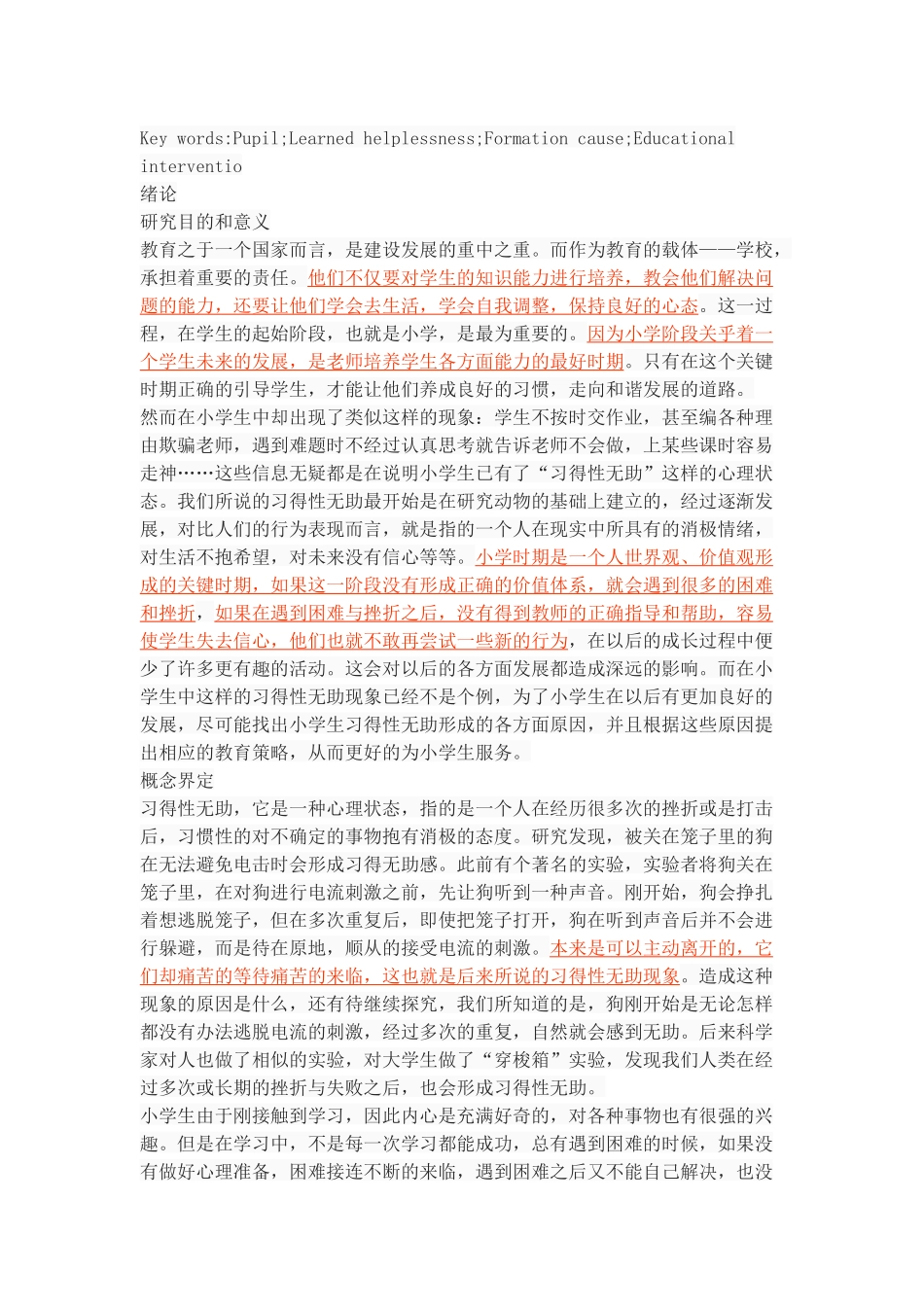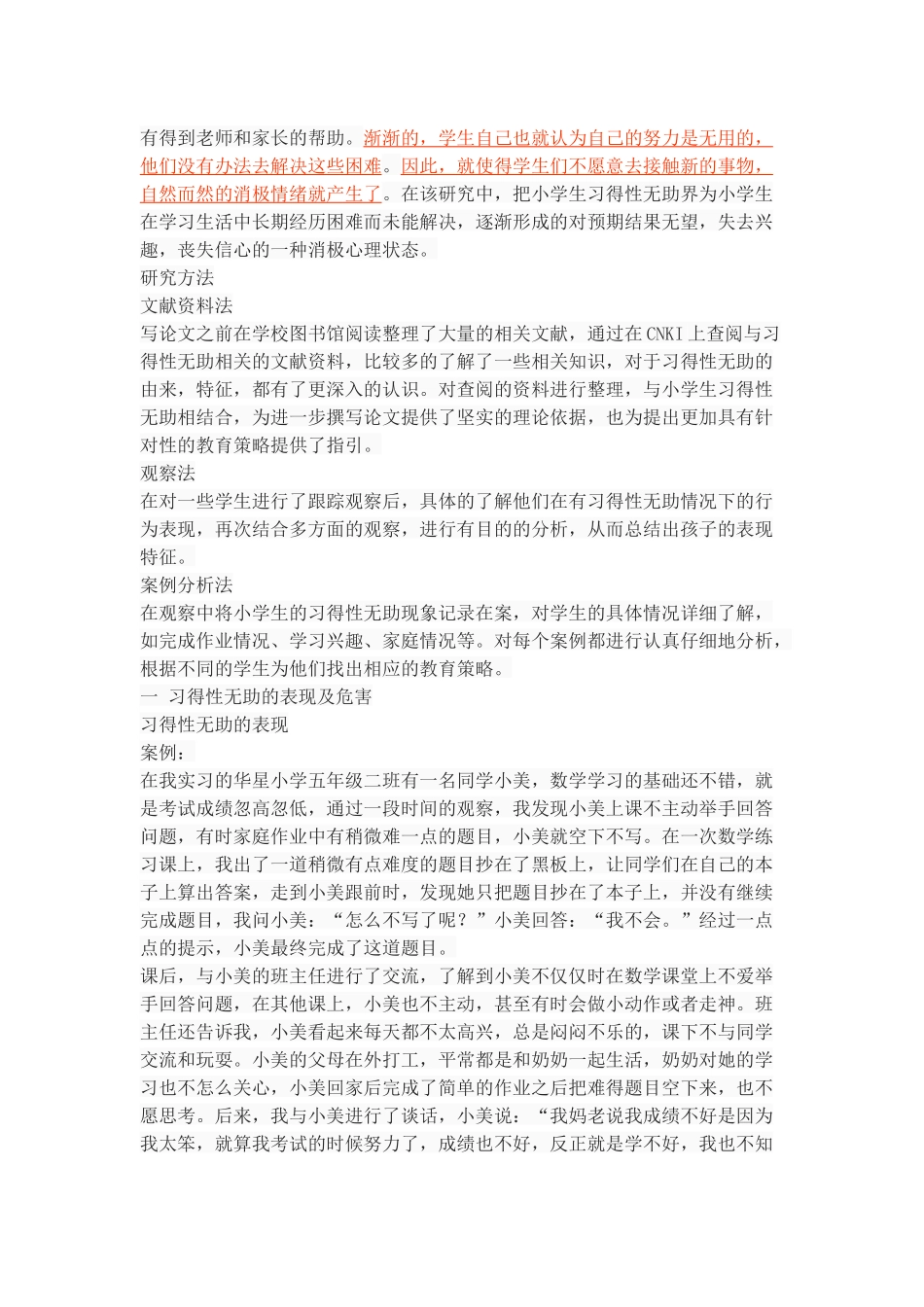摘 要小学生习得性无助是指小学生在学习生活中多次或长期经历困难而未能解决,逐渐形成的对预期结果无望,失去学习兴趣,丧失信心的一种消极心理状态。本文从多个方面分析小学生习得性无助,并从这些方面来解释小学生这一表征以及形成的原因。具有习得性无助会对小学生今后的发展有深远的影响,不仅影响学生的个性发展更加影响以后的社会适应。人们一般认为,小学生的这一表象主要由两方面的原因造成的,分别是内在和外在的原因。内部原因包括小学生的早期经历以及他们的在这一年龄阶段的心理特征;外部原因包括家庭教养方式,班级的不良竞争和教师、家长对小学生的消极评价。针对这些原因,进行详细的探究,最后提出一些针对性的建议。关键词:小学生;习得性无助;形成原因;教育干预AbstractPrimary school students' learned helplessness is defined as a negative psychological state that pupils gradually lose confidence in expected things and then lose interest in learning because they are countering difficulties for a long period of time in their life and suffering unresolved problems. This article aims to explain primary school students' learned helplessness from the perspective of its representations, damage, reasons and education intervention.Primary school pupils' learned helplessness is mainly manifested in four aspects, namely, cognitive impairment, emotional disorder, low achievement motivation and low self-efficacy. Pupils with learned helplessness will have a long-term and profound influence not only on the development of school children's personality but also on the future adaptation to the society. Through the analysis, the reasons of pupils' learned helplessness can be ascribed to internal factors and external factors. The internal factors refer to primary school students' previous experiences as well as their psychological characteristics at their age. The external factors include family upbringing style, class undesirable competitions and negat...












